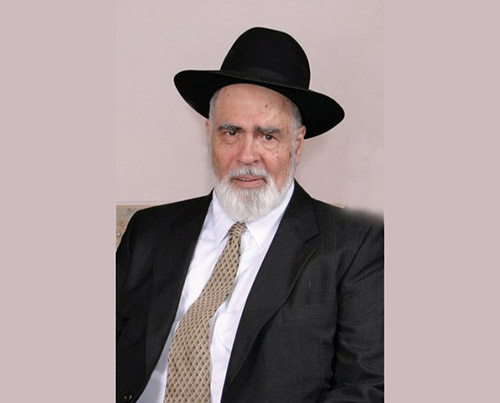
Question: How is it that we call the first 10 days of Tishrei the “Ten Days of Teshuva”?
On Rosh Hashanah, the first two days of Tishrei, no Selichot are recited during the davening. We do not say Al Cheit either. We do not ask Hashem for forgiveness. We do not mention committing aveirot, sins, at all. Some opinions even say we should omit Avinu Malkeinu because the opening verse says “chatanu lefanecha,” we have sinned before You!
So if we don’t mention anything regarding repentance during two days of Rosh Hashanah, why do we call the first 10 days of Tishrei Aseret Yemei Teshuva, Ten Days of Repentance? Shouldn’t it be the Shemoneh Yemei Teshuva,” Eight Days of Repentance, beginning after Rosh Hashanah?
The Rambam states in Mishneh Torah that the Torah refers to Rosh Hashanah as Yom Teruah, the day of blowing the shofar, which must be heard in order to fulfill the mitzvah of sounding the shofar. Interestingly, the Rambam does not include this in the laws of shofrot; it is found among the laws of teshuva. Why?
Some mitzvos have two parts: the maaseh hamitzvah, the physical act itself, and the kiyum hamitzvah, the ultimate fulfillment through an emotional feeling in one’s heart. One does not fulfill the mitzvah of the shofar by just sitting and listening to its sound. The Rambam states that the action of blowing the shofar is only for its underlying spiritual purpose: to awaken us from our slumber and bring us to teshuva! Hearing the shofar should stir up feelings of introspection, beckoning us to evaluate our deeds, improve ourselves and return to Hashem.
Rosh Hashanah is included in the Aseret Yemei Teshuva because it is a time of hirhurei teshuva—awakening feelings of repentance—realizing and reflecting upon the possibility of becoming a better person.
This special period of 10 days begins at the sunset going into Rosh Hashanah and concludes with the sunset of Yom Kippur. It is not only the beginning of a new calendar year but also an opportunity to renew our lives.
All for One and One for All
In the Rosh Hashanah Shemoneh Esrei, the blessing of the day’s holiness begins with “Elokeinu, v’Elokei avoteinu, meloch al kol ha’olam kulo b’kevodecha,” Our God and God of our forefathers, rule over the whole entire world with Your glory!
There is a word that seems extraneous. Why the repetition of “kulo”? If we are already saying “kol ha’olam,” the whole world, isn’t that sufficient? “Kulo” appears redundant.
The Taz is bothered by this question. He brings a pasuk regarding Korach and his complaint against Moshe Rabbeinu: “Kol ha’eidah kulam kedoshim”—the entire assembly is all holy! (Bamidbar 16:3)
What does the extra word “all,” kulam, add? The Taz says it adds extra emphasis. Korach wanted to emphasize that all of the congregation is equally holy! That was Korach’s big error. Every Jew is holy, but not equally as holy as Moshe Rabbeinu. Every Jew, even one who, God forbid, desecrates Shabbos, is holy but far from the high level of a great Torah scholar.
Similarly, in our Rosh Hashanah prayers, when we say “kol ha’olam kulo,” the Taz says that this is for emphasis: Hashem rules over every part of the entire world.
Rav Soloveitchik gives us an alternative explanation. He refers to the example of a great learned man, a talmid chacham. He may be called a baki b’kol haTorah kulo, someone who knows the whole entire Torah. Again, why the extra word “kulo”? Why not just “baki b’kol haTorah”? The Rav explains that the repetition is about uniformity. The talmid chacham knows and understands every part of the Torah equally well.
We often make a serious mistake when we daven. We think that the strong need Hashem more than the weak, the poor need Him more than the rich and the sick need Him more than the healthy. When Rosh Hashanah comes we realize this is not true. Our strength can dissipate, our health can fail and our wealth can disappear in the blink of an eye. By saying “meloch al kol ha’olam kulo” we tell the Ribbono Shel Olam that—young and old, rich and poor, healthy and sick—everyone needs His Divine assistance and benevolence. We must appreciate and thank Him for everything He gives us.
May He inscribe us all for a k’tivah vachatima tova—a happy, healthy and peaceful new year!
By Rabbi Dr. Zecharia Senter
Rabbi Dr. Zecharia Senter is the founder and CEO of KOF-K Kosher Supervision and was a talmid of HaRav Yosef Ber Soloveitchik, zt”l.











